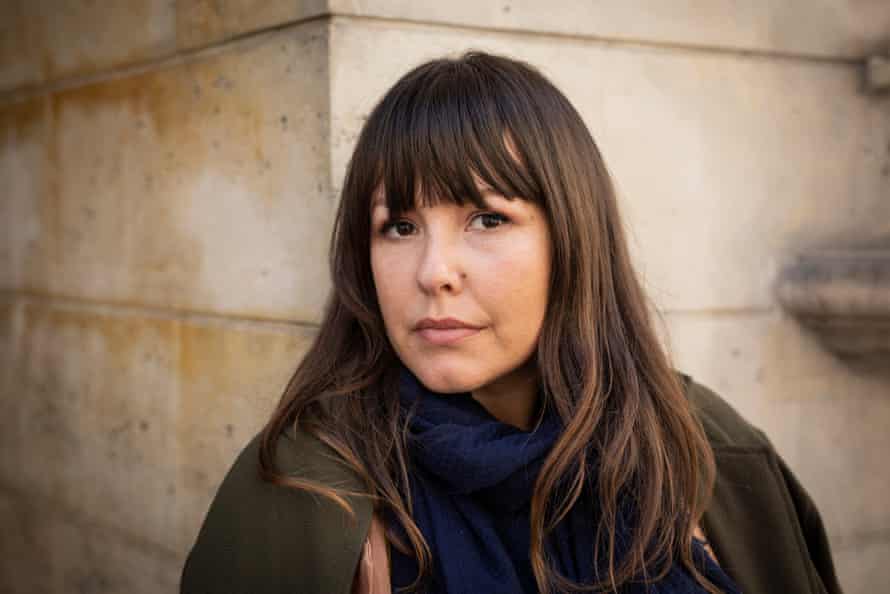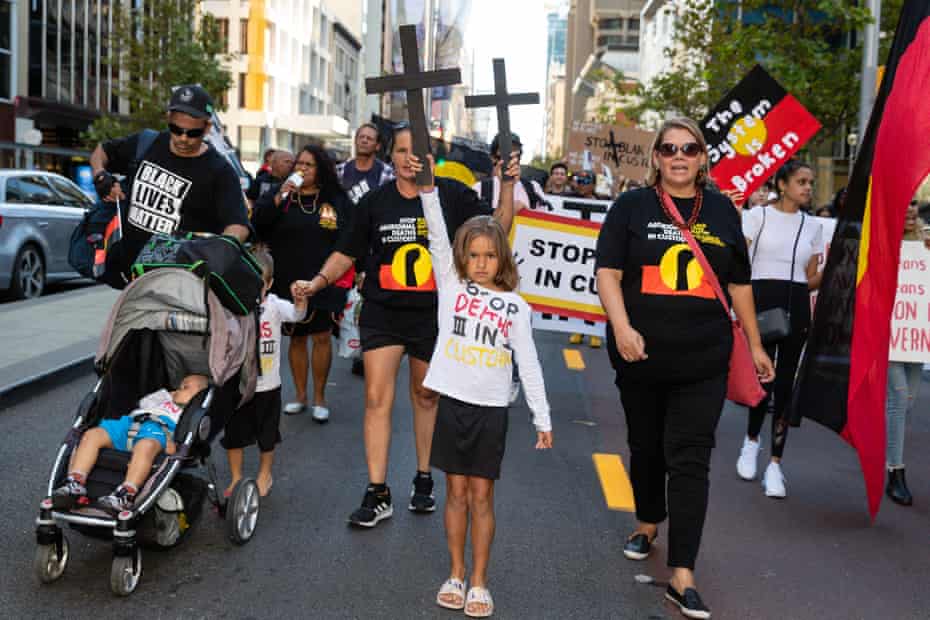Extract from The Guardian
Stranded in France, the Miles Franklin winner reflects on what her country looks like from the outside: violent, racist and in denial
- This is an edited version of a speech which opened the Sydney writers’ festival on 27 April

Last modified on Fri 30 Apr 2021 06.01 AEST
I’m on the Dfat flight waitlist, but nothing is leaving Paris. We lament all this on the “Stranded Aussies” forum. Home’s out of reach. Lately I’m reminded of that Neil Diamond song – with tweaked lyrics it would go: “Nowadays, I’m lost between two shores / France is fine, but it ain’t home / Australia is home, but it ain’t mine no more.”
It doesn’t feel like mine sometimes. Or if it does, it feels as if it’s the mine of 30 years ago. Why are 30-year-old royal commission recommendations still being debated, with nothing implemented? If we’ve said these things for decades, if the tools are there but without the societal or political will to implement change, then what good is time spent on the whittling of wood, the sharpening of stone to begin with? What good is a speech? What good is a royal commission? What is the point of all these reductionist words?
Perhaps for all these words, we’ve been focusing on the wrong ones. There is nothing quite like being grouped into that uncomfortable category of “Aussie” to make one evaluate the term.
What Australia looks like from the outside is an unwell country. It looks like being “Aussie” is a mental health crisis – a national crisis of identity. All egalitarian, but none of the justice. All words, no action. All that open space, and so many confined in cells. All the freedom of speech, and none of the critique. All those mates, yet all that violence.
Australia is violent. The police are violent. Perhaps not individually, but the system of overseeing and training law enforcement is violent, is racist, is broken. Australia is violent – one just has to look at the stats on domestic abuse, sexual violence, coercive control against women and children which exists in every Australian suburb, regardless of race and religion. The women killed every week by those men that fall through the cracks, whose masculinity is consumed by a violence never addressed in our early education.
Every human society has violence, and Aboriginal and Torres Strait Islander communities are no different – but not inherently more violent. Yet for merely 3% of the population, Aboriginal and Torres Strait Islander people make up 28% of the prison population. “Incarceration as a last resort” – that’s a 30-year-old recommendation. The families of the almost 500 avoidable deaths that have happened in police custody in that time know it.

Photograph: Richard Wainwright/AAP
And what of the self-inflicted violence? Almost one in five of all children aged between 11 and 17 experience high or very high levels of psychological distress, and Indigenous youth statistics are worse: unmatched suicide rates of our next generations, those with that terrible inheritance of colonialism and capitalism and being forgotten.
The hallmark of a healthy society has always been measured by how it cares for the disadvantaged, but there aren’t enough beds nor funding to even begin to address the mental health crisis.
This is a battleground; blood-soaked land, once scorched. From the distance, “Aussie” looks like the battler of the wetter wet season, the driest dry season; it looks like a pall of locusts, a terror of mice, a celebrity haven, the only commonwealth country not to have a treaty, those sinking boats, those island prisons.

French people ask me: “Why don’t we know about the Aborigine issues? Why don’t Australians like refugees and asylum seekers?” I published my first book 15 years ago, and Australian readers are still asking me the same questions: “Why don’t we know? Why were we never told about intergenerational trauma and the stolen generations, reform schools, missions, black birding? Why don’t we know that white Australia has a Black history?”
These aren’t disconnected problems; I think they’re one and the same. We Aussies don’t know who we are. What has been so effectively hidden is that whole story of Australia – by the education system, by the media, by the façade we’ve grown up with. We need to decolonise our education system, because it is a lie to say our languages are not a practical utility when they are languages of the land we all inhabit. These oldest words need to be accepted as part of our national identity – admit that we are a colony, admit that English doesn’t begin to describe our country. Ngũgĩ wa Thiong’o said of colonised Kenya: “The bullet was the means of the physical subjugation, and language was the means of the spiritual subjugation.” Don’t we realise that we’ve spiritually subjugated an entire nation?
Having a national identity, being “Aussie”, cannot happen without truth-telling and inclusivity. We can’t celebrate Covid success – and that long-term isolation from the world that comes with it – without examining the gilded cage, the rottenness on the underside, that violence against our First Nations people, against women, against those who have made Australia their home but haven’t the keys for the door.
What good is being proud of a country, patriotic, if you’re lying about the whole story? And knowing what it looks like from the outside, how will you read and write and tell and vote in those acres of open space, and those free, unmasked sun-dappled days with your mates?
*
I ordered a box from an Aussie supplies company. In it was overpriced Dettol (I wanted to smell our childhood home on cleaning days), Keens curry powder, a squeezy bottle of Vegemite, and some of our native ingredients. I’ve been cooking along to that beautiful Indigenous cookbook Wandu Mai. There’s a foreword by uncle Bruce Pascoe. In it he writes: “You can’t eat our Aboriginal food if you can’t swallow our history.”
Home is Tharawal salt, my mother there, my grandmother; and there’s the Ngurambang country, my father there, those grass plains. I’m homesick – as I’m sure so many migrants and refugees in detention are homesick, now more than ever. Those denied a place on country. I hope for a future that doesn’t feel like it’s not mine no more. Because among all the horror of the status quo it is within reach: the possibility to be whole, to be healed as well.
On the heels of that moment in 2020 when you were listening, it is not just time now but so past overdue to be honest with ourselves. To ask our education system to educate us and our kids, to retrain our police force, to heal our country, our land, our minds, our broken hearts. Because how can we hold a mirror to ourselves and write Aussie literature, read Aussie books, if we don’t know what it is to be Aussie in the first place?
I’m thinking of that EE Cummings poem, that line about “the root of the root, and the bud of the bud”. That’s where we should start to look – all the way back.
This is an edited version of a speech made on 27 April at the Sydney writers’ festival. The festival continues until Sunday 2 May
No comments:
Post a Comment